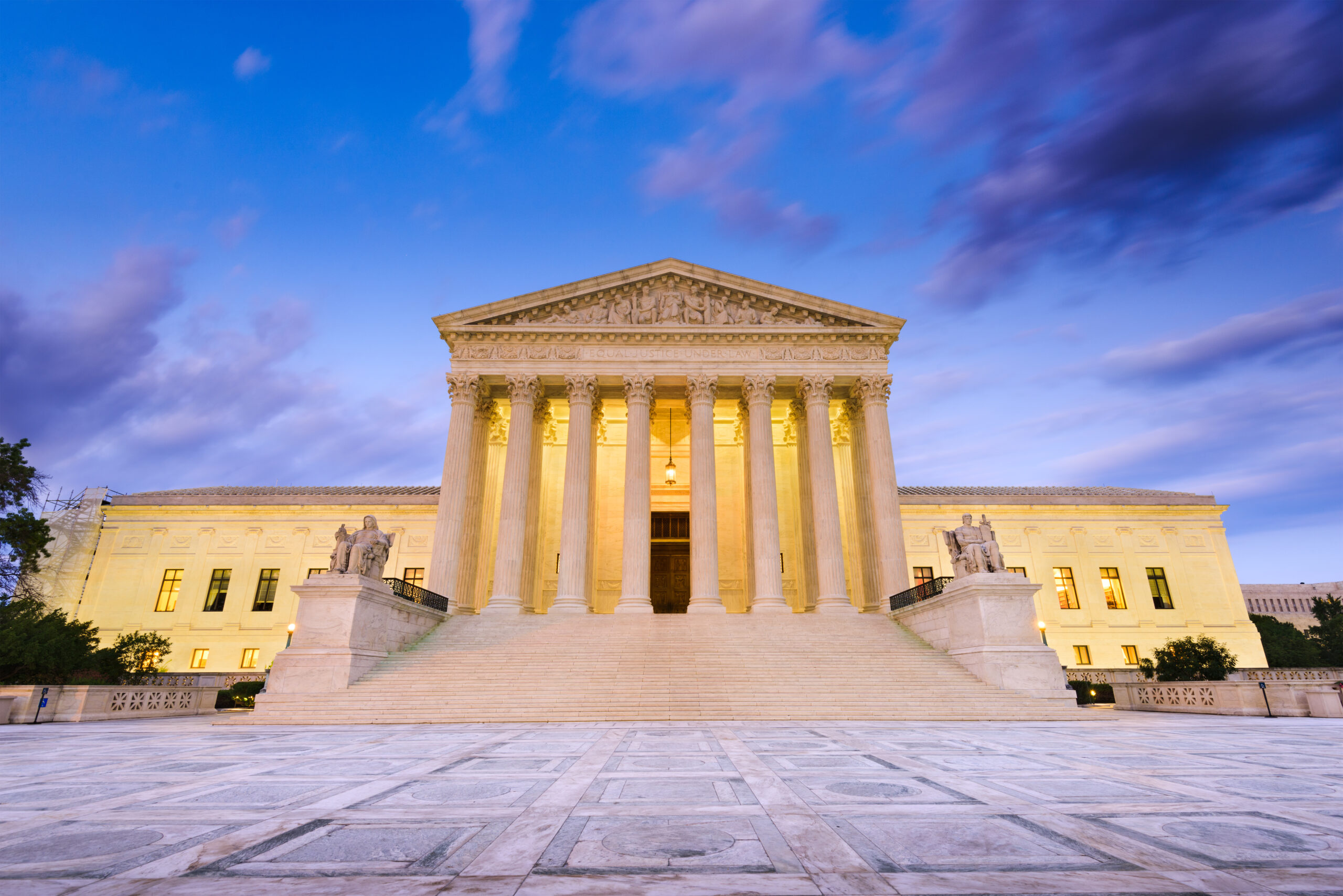Biometric data, such as fingerprint and retina scanning, offers significant utility for companies to make their operations efficient and secure. As companies have increasingly adopted the use of such technology, Plaintiffs’ attorneys have filed a flood of class-action lawsuits pursuant to the Illinois Biometric Information Privacy Act (BIPA) based on the companies’ purported failure to obtain valid BIPA consent from their employees, contractors, and customers in Illinois, resulting in unrestrained verdicts and settlements. Compliance with BIPA in Illinois is paramount, given its high liability risk. Are recent results in California the start of a trend?
10 W. Market St, Ste. 1400
Indianapolis, IN 46204
Scopelitis’ Transportation Brief® is intended as a report to our clients and friends on developments affecting the transportation industry. The published material does not constitute an exhaustive legal study and should not be regarded or relied upon as individual legal advice or opinion.
Congratulations to Amanda M. Daoud, Jordan A. Jacob, Kelsey M. Napier, and Rachael A. Satz, who began their law practice this fall as associates in the Indianapolis office.
Congratulations to the Scopelitis Firm for being recognized by U.S. News & World Report. Scopelitis was named to the publication’s “Best Law Firms” list for the tenth consecutive year. Law firms included in the list are recognized for professional excellence with persistently impressive ratings from clients and peers.
Scopelitis attorneys on the latest transportation industry news and trends.
Scopelitis attorneys are often invited to participate in meetings with transportation industry leaders. Learn more about their trips this quarter.
10 W. Market St, Ste. 1400
Indianapolis, IN 46204
Scopelitis’ Transportation Brief® is intended as a report to our clients and friends on developments affecting the transportation industry. The published material does not constitute an exhaustive legal study and should not be regarded or relied upon as individual legal advice or opinion.
10 W. Market St, Ste. 1400
Indianapolis, IN 46204
Biometric Data: Liability Beyond BIPA
Biometric data, such as fingerprint and retina scanning, offers significant utility for companies to make their operations efficient and secure. As companies have increasingly adopted the use of such technology, Plaintiffs’ attorneys have filed a flood of class-action lawsuits pursuant to the Illinois Biometric Information Privacy Act (BIPA) based on the companies’ purported failure to obtain valid BIPA consent from their employees, contractors, and customers in Illinois, resulting in unrestrained verdicts and settlements.
While Texas and Washington have their own biometric statutes, BIPA is unique due to its private right of action, statutory damages, and a provision that allows for liability to accrue each time biometric data is collected. Other states are currently considering biometric and state privacy laws. Until then, Plaintiffs’ attorneys are probing state laws to discover legal theories that may support lawsuits based on the collection and use of biometric data. For example, in several recent cases based on privacy torts and the California Unfair Competition Law (UCL), the courts did not summarily dismiss the causes of action.
In Renderos v. Clearview AI, Inc., the Superior Court of California held that biometric analysis of photographs caused Plaintiffs to experience a “loss of money or property” and allowed the claims to proceed based on the right to privacy under the California Constitution and the UCL. In the case of In re Clearview AI, Inc., Consumer Privacy Litig., the Northern District of Illinois similarly held that biometric information is “by its very nature. . . sensitive and confidential,” and a California subclass had an expectation of privacy for their biometrics under California law. Continuing the trend, in Kellman v. Spokeo, Inc., the Northern District of California held that the California Consumer Privacy Act (CCPA) cannot be used as a defense for California privacy torts or UCL claims even where the data is publicly available and the CCPA allows its use without notice. Thus, a company’s collection or use of biometric data without notice or consent may be a valid basis for a class-action lawsuit under California law.
Compliance with BIPA in Illinois is paramount, given its high liability risk. If recent results in California are the start of a trend, then more lawsuits may be filed under other state laws. As such, businesses should consider obtaining consent for all biometric data collection to minimize risk.
U.S. Supreme Court to Hear Transportation Worker Arbitration Case
The U.S. Supreme Court will hear a case to clarify who qualifies as a transportation worker for purposes of the Federal Arbitration Act (FAA). Supreme Court precedent enforcing class waivers in arbitration agreements subject to the FAA has given businesses an efficient way of resolving disputes on an individual basis. However, the FAA exempts contracts of employment for transportation workers who are engaged in interstate commerce.
In Bissonnette v. Lepage Bakeries Park St., LLC, a case involving franchisees that deliver baked goods, the U.S. Court of Appeals for the Second Circuit held the drivers were not “transportation workers” because they derived a majority of their revenues from the sale of baked goods and not from transportation charges for the movement of goods. If affirmed, drivers for private carriers are likely to be covered by the FAA – a beneficial result.
The Court recently scheduled oral argument in this case for February 20, 2024. Scopelitis attorneys are closely monitoring the case and will provide updates as it progresses toward a decision.
New Corporate Reporting Requirements Now Live
On January 1, 2024, the Corporate Transparency Act (CTA) went into effect, requiring numerous domestic and foreign companies to file ownership identification reports with the U.S. Department of Treasury’s Financial Crimes Enforcement Network.
Companies will be required to report information relating to “beneficial owners” and “company applicants,” among other information. Some companies may fall within exceptions to CTA reporting obligations, and the term “beneficial owner” does not include certain individuals such as minor children, agents of owners, employees with control solely from their employment, and individuals with ownership only through future inheritance or a creditor. As a result, information regarding such owners will not need to be reported.
Existing companies have until January 1, 2025, to comply with the CTA reporting requirement, while companies formed after January 1, 2024, may have as few as thirty days to file. Willful violations could result in a civil penalty of $500 per day, a fine of up to $10,000, and up to two years imprisonment.
Court Rules Freight Brokers Are Non-Exempt
A recent federal district court decision highlights the danger of classifying freight brokers as exempt from the payment of overtime. In Robert Hendricks v. Total Quality Logistics, LLC, the court held that TQL’s Logistics Account Executives should be classified as non-exempt from the payment of overtime because:
- They were primarily involved in the production of the very service TQL provides rather than the overall management of business operations; and
- They did not exercise sufficient discretion and independent judgment.
While there have been several prior lawsuits attacking the exempt classification of freight brokers (most resulting in settlement), this recent ruling is perhaps the most comprehensive published opinion on this subject and is likely to prompt additional lawsuits and wage claims.
Spotlight: Mergers & Acquisitions
When moving forward with a purchase agreement—whether it relates to buying or selling discrete assets or an entire business—the Firm’s M&A practice group offers a unique combination of deep industry knowledge and cutting-edge M&A expertise. Scopelitis’ M&A group is equipped to guide clients through complex transactions involving multimodal operations and private equity investments, strategic purchases for operators, and succession planning for closely held companies.
Scopelitis is uniquely positioned to advise on many key issues:
- The purchase or sale of any type of transportation or logistics provider, including indirect air carriers, ocean freight forwarders, customs brokers, motor carriers, property brokers, and warehouse operators;
- The purchase or sale of public and private companies;
- Representations and warranties insurance procurement and the binding process;
- Buying from or selling to private equity investors;
- The implications of equipment credentialing in the sale of equipment;
- An array of due diligence considerations, including complex transportation/logistics topics and issues;
- Navigating through complex regulatory notice and consent requirements specific to transportation and logistics operations
From negotiations and due diligence to closing the transaction and post-closing integration and counseling, the Firm has extensive experience counseling transportation clients across the supply chain in purchasing or selling businesses.
Congratulations to Amanda M. Daoud, Jordan A. Jacob, Kelsey M. Napier, and Rachael A. Satz, who began their law practice this fall as associates in the Indianapolis office.
Congratulations to the Scopelitis Firm for being recognized by U.S. News & World Report. Scopelitis was named to the publication’s “Best Law Firms” list for the tenth consecutive year. Law firms included in the list are recognized for professional excellence with persistently impressive ratings from clients and peers.
Legal Update for Airforwarders Association General Meeting
Presenters: Braden K. Core,
Panelist: Cybersecurity Updates
Presenters: Braden K. Core,
Attendees: Donald J. Vogel, Kathleen C. Jeffries, , Madeleine V. Baker,
Legal Landscape of the Trucking Industry: A Comprehensive Update
Presenters: Christopher C. McNatt, Jr.,
Recent Cargo Loss Decisions
Presenters: Thomas Gonzalez,
Attendees: Kathleen C. Jeffries,
One of the most persistent and thorny employment issues interstate motor carriers face is determining which states’ wage and hour laws may apply to over-the-road drivers who operate in multiple jurisdictions. In a recent decision for carriers whose drivers pass through California, a federal district court in Oklahoma held that California’s wage and hour laws setting minimum wage rates, requiring timely payment of final wages, and regulating wage deductions did not apply to non-resident drivers who drove intermittently in California for an Oklahoma-based carrier. The Oklahoma court’s decision is an important extension of holdings from a pair of 2020 cases issued by the California Supreme Court, which held that California’s wage statement and pay timing rules only apply to interstate workers whose principal place of work is in California. Jay Taylor predicts, given the frequency with which carriers based outside California face lawsuits involving their drivers’ work in the state, this issue will continue to arise, but this new decision will likely help motor carriers defend against similar claims.
Chris Eckhart reports the Federal Motor Carrier Safety Administration is considering whether to adopt a formal appeals process that would permit motor carriers to appeal certain Data Q challenges denied after the initial review.







